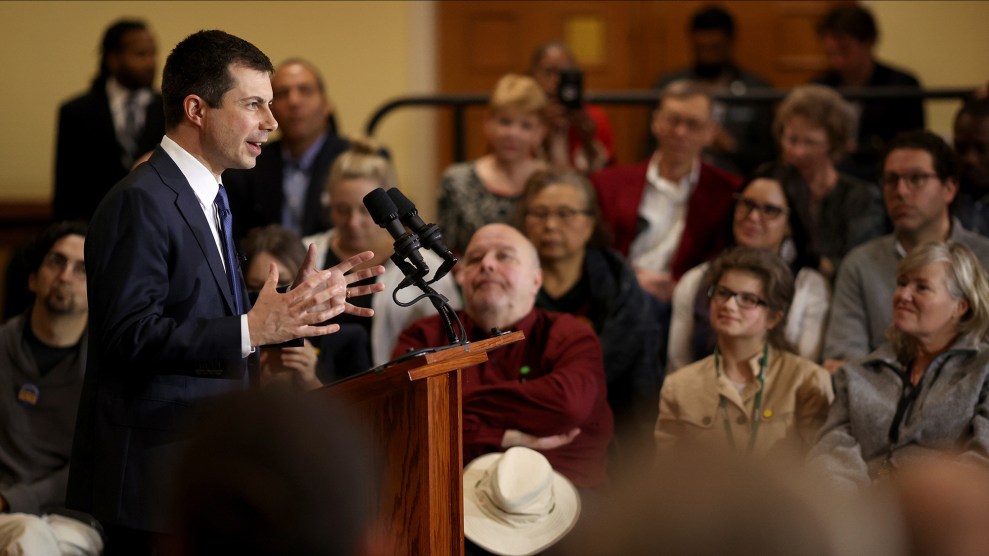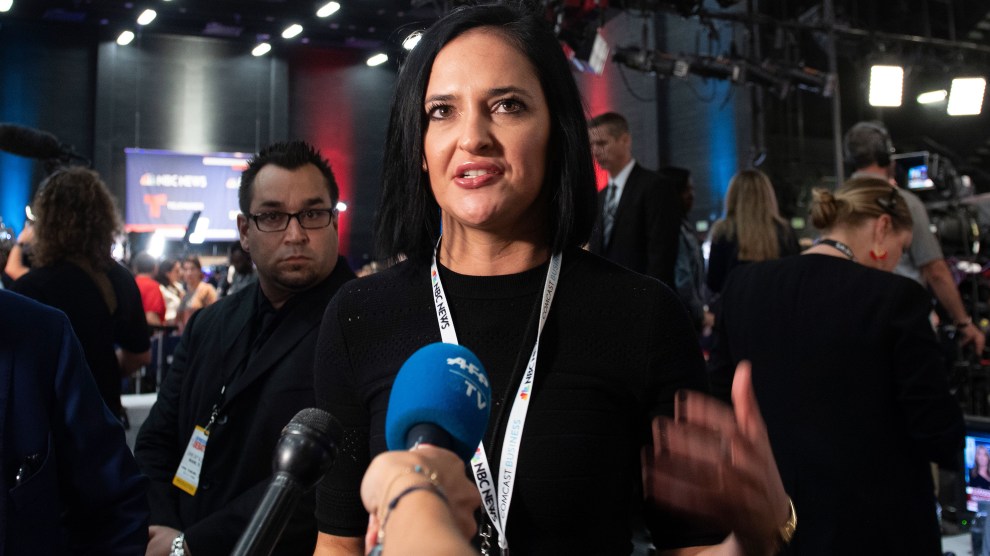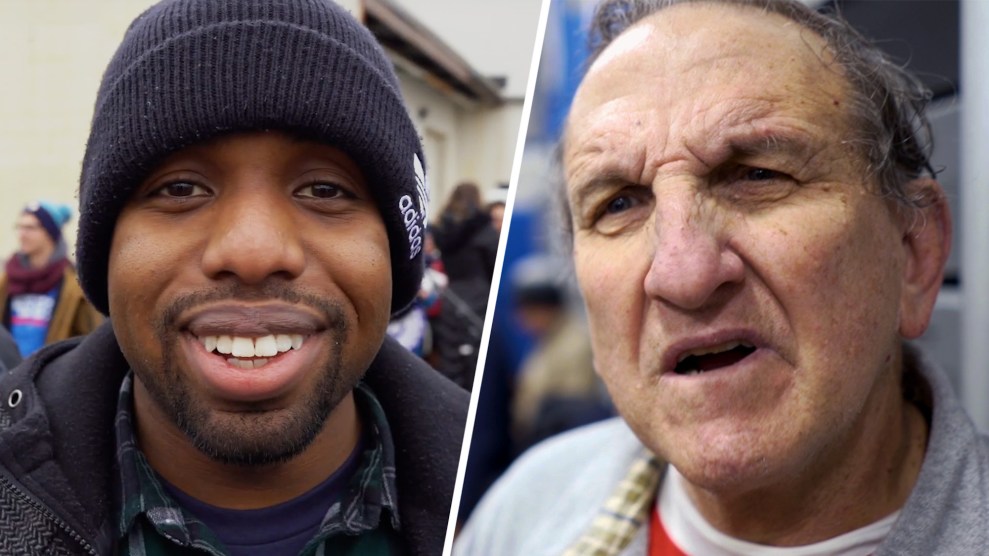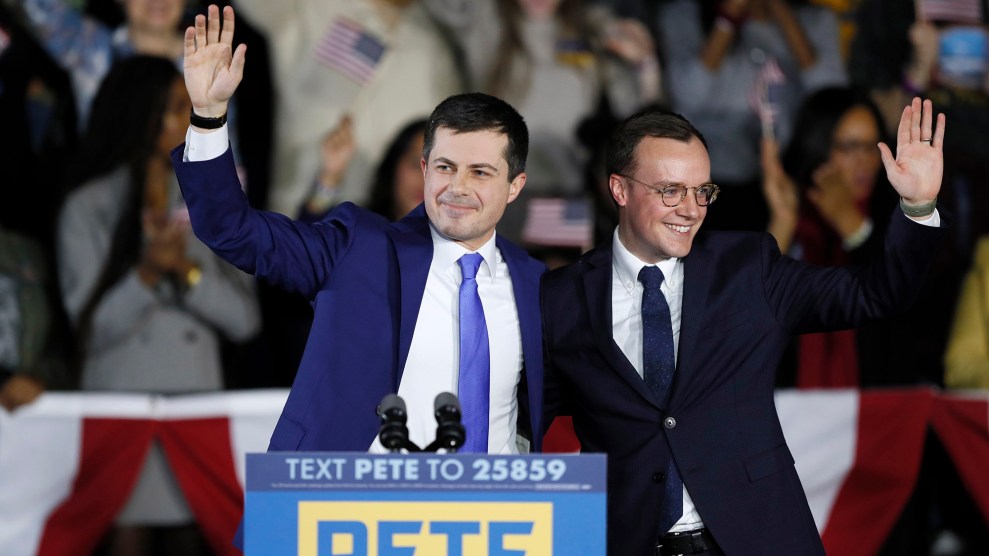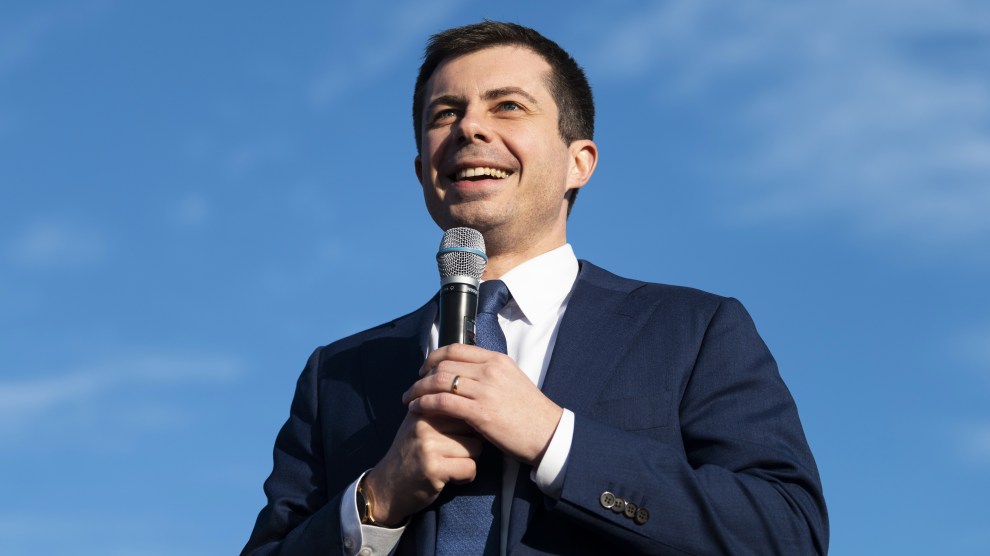
Michael Brochstein/Zuma
After a meteoric rise from little-known midwestern mayor to winner of the Iowa caucuses, Pete Buttigieg is planning to drop out of the race for the Democratic presidential nomination on Sunday, according to the New York Times.
The former South Bend, Indiana, mayor made history as the first openly gay candidate to win a presidential primary or caucus, and he managed to make a name for himself as a young, moderate voice in the crowded Democratic field. Despite receiving fewer individual votes than Vermont Sen. Bernie Sanders in Iowa, Buttigieg—according to the state’s Democratic Party—earned more state delegate equivalents than Sanders, eking out a win that was not announced until weeks after the caucuses took place.
As my colleague Patrick Caldwell writes, Buttigieg’s campaign represented a landmark moment in US politics:
An openly gay candidate winning a presidential contest is noteworthy nationally, of course, but it’s especially remarkable given Iowa’s history on LGBTQ rights. It was one of just three states where same-sex couples could wed when the state Supreme Court legalized marriage in 2009. But Iowa opened the door to same-sex marriage through a court ruling, not legislation, and there were signs that the public was wasn’t entirely on board. Three of the seven judges behind the decision were voted out of office the next year, after a vicious campaign by conservative activists. Suburban and especially rural Iowans led the backlash against same-sex marriage.
Ten years later, Buttigieg’s success in Iowa came thanks to his performance in many of those same rural counties. Sanders outperformed Buttigieg in most of the state’s urban areas, while Buttigieg cleaned up many of the sparsely populated, historically Catholic counties in eastern Iowa that backed Trump in 2016 and opposed marriage equality a decade ago.
“He’s getting support in the areas where we lost the worst on marriage,” Iowa Democratic Party chair Troy Price, who previously ran an LGBTQ rights group that helped sue to legalize marriage, told me last week. “It’s the suburban areas, it’s the rural areas, that’s where he’s doing really well.”
Buttigieg also gave Sanders a run for his money in New Hampshire, losing by a little more than one percentage point. However, his support dwindled in Nevada, where he came in third place with 14.3 percent of county convention delegates. After a fourth-place finish in South Carolina, Buttigieg is ending his campaign.


